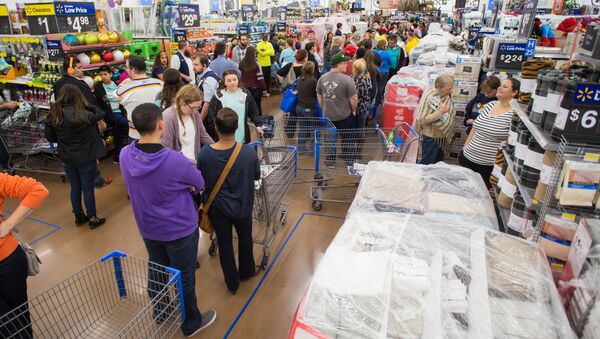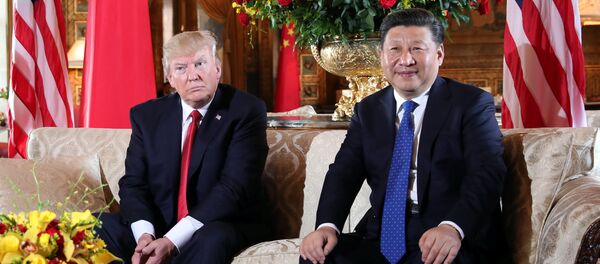As part of his ambitious pledge to create 25 million new jobs in the US, Donald Trump has threatened companies which sell foreign-produced goods in America with a 35 percent import tariff.
Last month, the head of Japanese clothing giant Uniqlo was blunt about his company's response to Trump's proposals. He told the Japanese newspaper Asahi Shimbun that if Trump imposed such a high import tax, the company would simply stop selling its clothes in the US.
"If we were told that directly, we would withdraw from the market," Tadashi Yanai, founder and president of Uniqlo's parent company Fast Retailing, said.
"It is not possible for us to make really good products (in the US) at attractive prices for the consumer. It would become meaningless to do business in the US."
"Uniqlo produces clothing all over the world. It's the fourth largest retail clothing company in the world, a colossal transnational business. Now, Uniqlo has 51 stores in the US and because of its popularity it was planning to open another 20 stores."
"Above all, it sells affordable casual clothes for young people and children. However, if the cost of its clothes goes up by 20 percent because of manufacturing in the US, then the parents might, you could say, revolt. After all, this would hit their wallets and the interests of a large sector of the US population," Leonteva said.
The analyst said that Trump could be forced to back down if Uniqlo and others respond by raising prices or leaving the US market.
"Trump is unpredictable. His statements are often aimed specifically at the broad mass of people who voted for him. However, if US consumers of the popular Japanese brand are unhappy, he might have to back down."
"However, it's hard to predict what he's going to do next. In addition to Uniqlo, Japanese carmakers could suffer as well."
Toyota Motor said will build a new plant in Baja, Mexico, to build Corolla cars for U.S. NO WAY! Build plant in U.S. or pay big border tax.
— Donald J. Trump (@realDonaldTrump) January 5, 2017
Trump has promised to impose a 35 percent import tax on automobile manufacturers who make cars in Mexico and elsewhere and then sell them in the US. In January, he targeted German and Japanese carmakers such as BMW and Toyota, calling on them to produce cars for the US market in the US or face the 35 percent import duty.
In response to Trump's threats, the German and Japanese governments have tried to persuade Trump of the benefits of free trade. German Chancellor Angela Merkel took a trade delegation to Washington to press their case, and Japanese Prime Minister Shinzo Abe came up with an investment plan that would create some 700,000 jobs.
Leonteva said that Toyota's success in the US market demonstrates that while US shoppers tend to agree with Trump that the goods they buy should be made in the US, in reality they want to buy the product that presents the best value for money regardless of where it was manufactured.
"Japanese car brands are quite well-represented in the US market, and they successfully compete with American cars because they are smaller and their fuel consumption is more economical. Most of the parts are made in Mexico and the assembly is in the US. If Americans are buying them, it means that they are quite happy with the price," Leonteva remarked.
Never miss a story again — sign up to our Telegram channel and we'll keep you up to speed!






